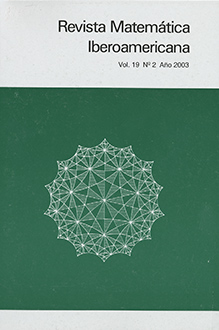Abstract
Given a probability space $(\Omega, \mathsf{A}, \mu)$, let $\mathsf{A}_1, \mathsf{A}_2, \ldots$ be a filtration of $\sigma$-subalgebras of $\mathsf{A}$ and let $\mathsf{E}_1, \mathsf{E}_2, \ldots$ denote the corresponding family of conditional expectations. Given a martingale $f = (f_1, f_2, \ldots)$ adapted to this filtration and bounded in $L_p(\Omega)$ for some $2 \le p < \infty$, Burkholder's inequality claims that $$ \|f\|_p \sim_{\mathrm{c}_p} \Big\| \Big( \sum_{k=1}^\infty \mathsf{E}_{k-1}(|df_k|^2) \Big)^\frac12 \Big\|_p + \Big( \sum_{k=1}^\infty \|df_k\|_p^p \Big)^\frac1p. $$ Motivated by quantum probability, Junge and Xu recently extended this result to the range $1 < p < 2$. In this paper we study Burkholder's inequality for $p=1$, for which the techniques must be different. Quite surprisingly, we obtain two non-equivalent estimates which play the role of the weak type $(1,1)$ analog of Burkholder's inequality. As application we obtain new properties of Davis decomposition for martingales.
Citation
Javier Parcet. "Weak type estimates associated to Burkholder's martingale inequality." Rev. Mat. Iberoamericana 23 (3) 1011 - 1037, Decembar, 2007.
Information





